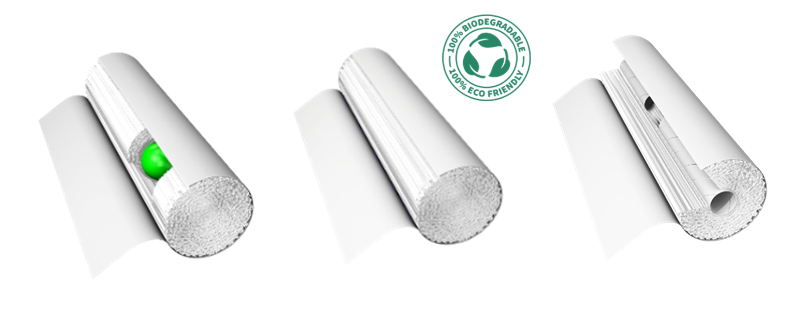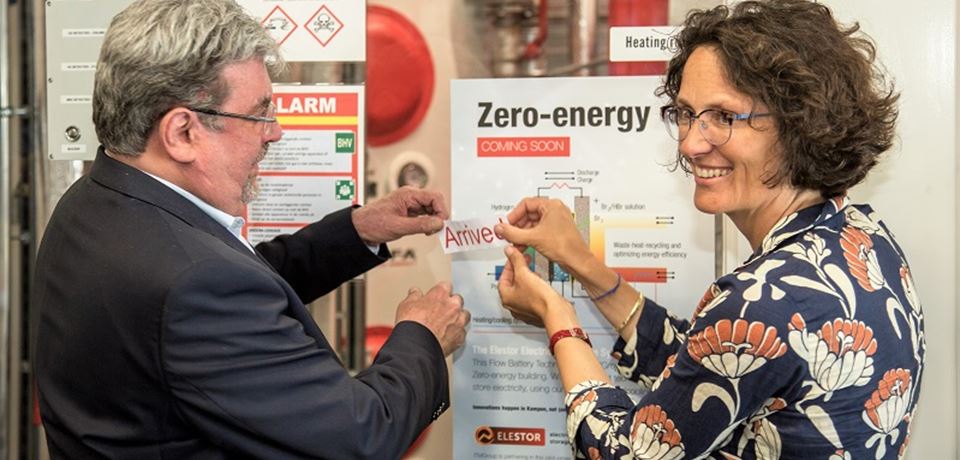On July 3rd, new European legislation on Single Used Plastics will come into force. This new directive requires producers specific product labeling, to increase awareness about the negative impact of plastics for the environment.
Additional new directive requires the implementation of EPR (Extended Producer Responsibility) schemes by 5th of January 2023, under which the producers of these products would have to cover at least the costs of the awareness raising measures, as well as the cost of waste clean-up, collection, transport and treatment.
At ITM, we welcome this new legislation to support sustainable initiatives and deliver sustainable alternatives for the tobacco industry. TJI magazine asked Maria Chudkiewicz and Witold Bialas to share ITM's recent developments on sustainability and innovation. Below you will find an extract of the interview.
The role of ITM at Tembo Group
ITM and its subsidiaries are constantly developing and contributing to the Tembo Group as Marketing Manager at ITM Poland Maria Chudkiewicz explains, “We are a strong pillar in a group with extensive experience in business. We develop new technologies and build cooperations with our clients, but we also provide great support for Tembo in terms of the development of service technology and experience that can be used by other companies within the group, dealing with other businesses.”
ITM’s core activity is building complex production lines for tobacco manufacturers. In doing so, the company works very closely with each customer to come up with the perfect solution. “The project implementation
process is based on close cooperation with the client and mutual constructive dialogue. In each case, we try to listen to the needs of our clients. We try to understand the specifics of the product and the requirements related to the production process itself. We use our technological and market knowledge so that the customer receives a solution that fully meets his expectations,” says Chudkiewicz.
Responding to market trends
ITM’s biggest factory is located in Radom, Poland where the machines are created and built to meet the highest quality standards and, as Chudkiewicz confirms, most machines that leave the factory are adapted to individual client requirements. Speaking with the customer is key but it is also important to keep an eye on rapidly changing trends and directions as well as on new regulations. “We are constantly analyzing our customers’ industries. We are looking for trends, opportunities and threats,” says Chudkiewicz.
Not only that, ITM is always up for a challenge. “Our strategy is to provide the market with unique solutions with features that are hardly found on the market,” says Chudkiewicz. This thinking enables ITM to be one step ahead of its competitors right from the get-go. Especially in the ever-changing world of tobacco it is important to be innovative and creative in offering customers solutions that are tailor-made and in keeping with industry guidelines.
The impact of cigarette filters
One area that is becoming increasingly important is that of sustainable products. The new Single-Use Plastics (SUP) Directive will impose additional obligations on manufacturers of such products, which includes classic cigarette filters that contain around 98 per cent of cellulose acetate. It takes years for a cigarette filter to completely disintegrate, making it extremely harmful to the environment – a fact ITM is also aware of.
“This kind of pollution is a serious problem and contributes to global warming – a serious challenge for the whole of mankind and future generations. Therefore, as a company, we are looking to offer the tobacco industry ‘eco alternatives’ to currently used filters and filter components,” says Witold Białas, Business Development Manager FT at ITM.
Collaboration and innovation
To counteract the problem, ITM is collaborating with a new member of the group, SPI Developments, to produce biodegradable paper filters. The papers can be produced from tissue, ecological or standard paper and can even be enriched with charcoal or different flavours and sprays when it comes to heat-not-burn products (HNB). “This solution produces paper filters with the same quality and efficiency as mono-acetate filters,” says Białas. He also points out that the eco-trend has motivated tobacco companies to seek more extensive technology development, not only in traditional tobacco products but also in regard to new product categories.
Already a highly successful operator in the world of combustibles, ITM was quick to realize the potential of Heat-Not-Burn products and began looking into the production process and possibilities the market had to offer. “New production technologies can help overcome the stagnant productivity of recent decades and make way for more value-added activity,” says Białas, underlining the company’s forward thinking approach. With its innovative approach and many areas of expertise, ITM will continue to be successful in most of the projects it undertakes. As Chudkiewicz puts it, “Manufacturers are increasingly looking for innovative, sustainable solutions. That is why cooperation, knowledge sharing, going beyond the patterns and professionalism are nowadays the key components of long-term success.”


